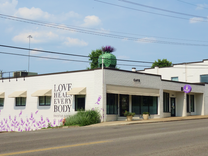Living in Nashville: Guide to Food, Entertainment, & Real Estate


by Tyler Forte
About Nashville, Tennessee
Located in Davidson County, the city of Nashville is the anchor to a metro population of nearly 2 million residents. The growth of Nashville has caused residents to expand outside of city limits and explore neighboring cities such as Gallatin and Hendersonville to the north, Mount Juliet and Lebanon to the east, Franklin and Brentwood to the south, and Pegram and White Bluff to the west. Much of this growth is thanks to a lower cost of living and a strong local economy. Tennessee has a favorable tax rate for residents and businesses alike. Many businesses are relocating their corporate headquarters to Nashville in response and residents from high-tax states such as California and New York are moving to Nashville daily.
Where Is Nashville Located?
The state of Tennessee is split into 3 defined regions, East, Middle, and West. Nashville sits in the northern portion of Middle Tennessee. Nashville is nearly 560 square miles in size, and the city population accounts for roughly 678,448 residents. Nashville’s metropolitan area expands further out to include several suburbs and 13 surrounding counties. It is also the largest and most populated metro area within the state.
How’s The Vibe In Nashville?
If you’re a fan of great food, live music, and endless entertainment, then you’ll want to consider planting your roots in Nashville, Tennessee. Although Music City gained its notoriety for the lively Honky Tonks on Broadway, the city isn’t just for music aficionados. The favorable cost of living, low unemployment rate, and rapid development make it a great place to raise a family or even begin your professional career.
What’s The Food + Nightlife Scene Like In Nashville?
Nashville is home to a number of James Beard award-winning restaurants. Catbird Seat, Henrietta Red, Folk, and Bastion are a few of the many standout restaurants located in Nashville. The city has a strong and growing culinary presence throughout several of its neighborhoods. With so many great options narrowing down the top favorites isn’t easy, but you can never go wrong with the Nashville classics at Arnold’s Country Kitchen, Hattie B’s Hot Chicken, or The Loveless Cafe.
The world-famous Downtown Honky Tonk bars feature live music throughout the day and night. Iconic Broadway favorites include The Stage and Tootsie’s Orchid Lounge. The city also offers many upscale cocktail lounges, such as the Patterson House. You can even find several popular rooftop bars at prestigious Nashville hotels, such as the Westin or Thompson Hotel.
What Are The Top Things To Do In Nashville?
You can't mention Nashville without making reference to its nickname, "Music City." Nothing epitomizes this nickname better than the Broadway strip found in Downtown Nashville. This road lined with Honky Tonk bars brings in over 16 million tourists per year. Nashville is also a sports town and is home to professional teams such as the Nashville Predators hockey team, Tennessee Titans football team, and Nashville FC soccer team. The Nashville Sounds, a AAA baseball team also calls the popular Germantown neighborhood home. Nashville is known as much for its rich history as it is for its music and sports. Most notably, the former home and current museum of President Andrew Jackson is located in Hermitage, a neighborhood located between Old Hickory Lake and Percy Priest Lake. Speaking of lakes, Nashville has a rich landscape. The Cumberland River passes directly through Downtown Nashville and the Smoky Mountain National Park is a three-hour drive east.
How’s The Real Estate Market In Nashville?
Music City as it's known is mostly comprised of single-family homes although Downtown Nashville has a number of luxurious high-rise residential condos. The residential real estate boom Nashville is undergoing is largely the result of a city-wide housing shortage. Even though Downtown Nashville seems like it has been taken over by cranes and new construction in the suburbs, people are moving to the city faster than developers can provide extra housing. As long as home buyers are competing over a limited number of desirable properties, home values should continue to skyrocket. This isn’t to say, however, that all Nashville neighborhoods are created equal. To treat the city as a real estate monolith would be selling short the astounding housing variety within city limits.
Although most options do not come cheap, Nashville offers homeowners everything from The Gulch’s downtown penthouses (typically 1,000 - 2,000 square feet) to the tree-lined suburban avenues of Green Hills (typically 2,500 - 4,000 square feet). Whatever style of living you're seeking, it’s somewhere to be found in Nashville’s patchwork of distinctive neighborhoods. Homes in exceptionally walkable areas, like East End, often list for anywhere from $400,000 to over $1,000,000. Places like Germantown, with easy access to Downtown, feature properties that range from around $500,000 to three times that much. Those looking for a more affordable entry into the city limits might consider settling in the Antioch, Bellevue, Donelson, or Madison neighborhoods. Many of the homes in these neighborhoods were built in the 1960s and 1970s but have since been updated.
Since becoming a homeowner in Nashville often represents a considerable financial commitment, it’s wise to get to know the character of each neighborhood to find the one best suited to your lifestyle and budget. Once you become well-acquainted with the real estate market of your desired area, you’ll have all the tools to secure your future in Nashville, Tennessee.
The greater metro real estate market continues to be one of the hottest in the United States. While much of the country has watched their home prices decline in 2022, Nashville’s housing market has remained relatively resilient. Even in 2022, a year defined by rising interest rates and a weakening real estate market, the median sale price of a Nashville home has increased by 8.7%. This momentum doesn’t seem to be slowing any time soon. As the Nashville real estate market experts, we at Felix Homes expect the city’s median home values to continue to rise throughout 2025. One of the main factors that cause a real estate market to decline is the rate of foreclosures. Luckily, the influx of businesses and residents moving to Nashville, combined with a historically low inventory of homes for sale means the Nashville market will likely be shielded from a rise in the rate of foreclosures. Open houses in the Nashville market are most commonly held on Sundays from 2:00PM - 4:00PM.
Purchasing a home in Nashville is a good investment due to the city’s rapid development, growth, and low unemployment rate. The city has a favorable cost of living, especially compared to many metro cities, and buyers can choose from several affordable properties.
PRO TIP: See homes for sale in Nashville
How’s The Cost Of Living In Nashville?
Nashville’s overall cost of living is comparable to the U.S average. While housing costs are the highest expense category, it is still favorable for a metropolitan city. According to Sperling’s Best Places, the median home cost in Nashville is $341,700. Renters account for roughly 41.9% of the residential population, and the average rental price for a one-bedroom unit is around $1,049.
How Is Transportation In Nashville?
The average one-way commute time for those living in Nashville is approximately 26 minutes. Some neighborhoods in Nashville are very walkable, however, depending on where you live and work, you’ll likely need a car. WeGo is the city’s public transportation bus system. It operates throughout Nashville and Davidson County, but most of the bus routes run closer to the downtown region. Using the public transport system is not as common in Nashville as compared to many traditional metropolitan cities.
What Are The Top Schools In Nashville?
Nashville and its surrounding suburbs offer a number of top-performing public and private schools. Hume-Fogg Academic Magnet and Martin Luther King Jr Magnet School are the two leading public schools within the city limits. Another Grade A public school in Nashville is Meigs Academic Magnet, which offers classes for grades 5-8. The top private institution in the area is University School in Nashville.
What Are The Best Parks In Nashville?
Even with the rapid development occurring in Nashville, the city still offers a variety of green spaces and parks. Bicentennial Capitol Mall State Park features 19-acres of land and stunning capitol views. The location hosts a number of local events, such as the Nashville Farmers Market. Centennial Park is another popular park centrally located in Nashville. It stretches over 132-acres and is home to the iconic Parthenon replica. Additional favorite parks located throughout the city include Cumberland Park, The Warner Parks, and Radnor Lake.
Is Nashville A Safe Place To Live?
According to Neighborhood Scout, Nashville has one of the highest documented crime rates in the nation. While this is likely influenced due to tourism, both property and violent crime rates are exceptionally high. One thing to note about the crime rates is that it does vary by area. Certain neighborhoods are less affected by crime, whereas others have higher reports. Nashville’s metropolitan police department partners with Crime Mapping to disclose reported crime in various areas of the city.
Pros To Living In Nashville
- Endless entertainment and live music.
- Favorable cost of living for a metropolitan city.
- Low unemployment rate & rapid development.
Cons To Living In Nashville
- Public transportation is not the most efficient.
- Heavy traffic.
- Intense humidity during the summer months.
About Felix Homes
Felix Homes is where five-star service meets low commissions! To date, we've saved our clients $1,610,738 in commission fees and have earned 120 five-star reviews on Google!
How are we able to offer five-star service AND lower commission fees? It's simple:
- We're an independently owned brokerage – not a franchise which allows us to keep more of the commission we earn.
- By offering a lower commission, more folks want to work with us which means we close more deals. By closing more deals, we can pass more savings along to our customers!
Still not convinced? Read all about our low-commission mission here.
If you have any questions about the state of the market or the home buying/selling process, please feel free to contact us at contact@felixhomes.com or 615-354-5731.




